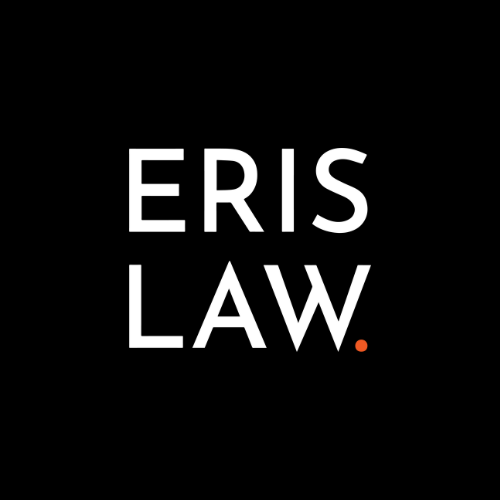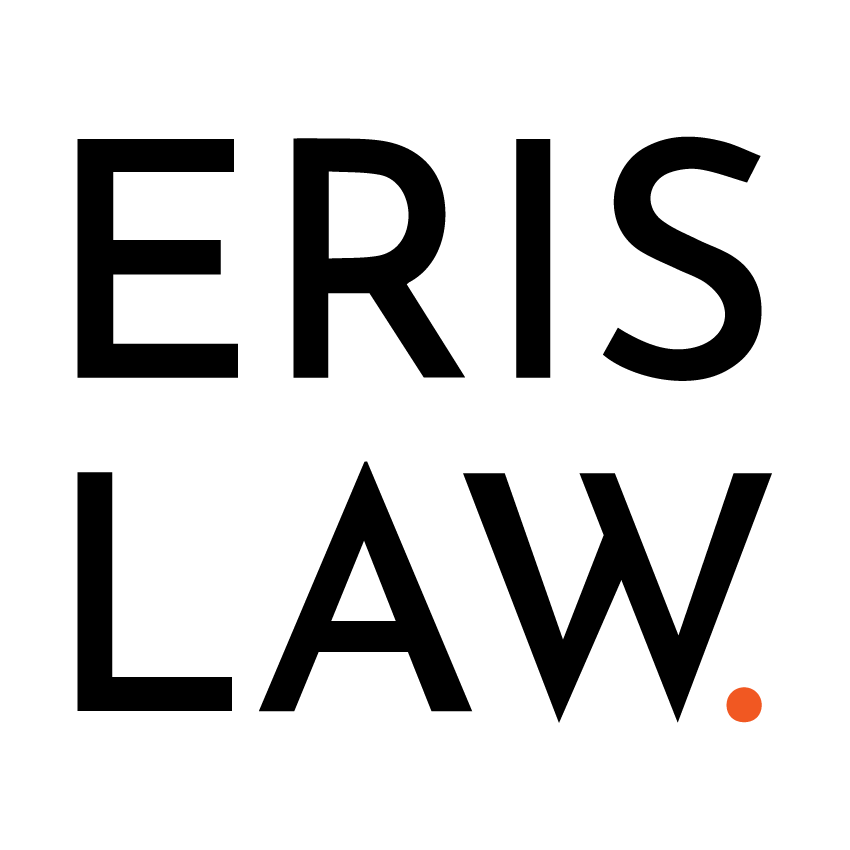What’s New at Eris Law Advokatbyrå AB
On May 21, 2025, the Swedish Parliament adopted new legislation that significantly reshapes the consumer credit market. As of 1 July 2025, only authorized credit institutions such as banks and licensed credit market companies will be permitted to issue or mediate consumer credit.
It stems from the bill ”Strengthened Consumer Protection in the Credit Market”, which introduces stricter requirements and aims to ensure responsible lending and more effective supervision of the credit sector.
What does this mean for you?
If your business is currently operating under the Act on Certain Activities with Consumer Credit, you will need to apply for a licence as a credit institution to continue providing or mediating loans after 1 July 2025.
💼 Need help navigating the new requirements?
The application and compliance process can be complex. At Eris Law Advokatbyrå AB, we offer tailored legal advice on authorisation procedures, compliance with financial regulations, and licensing under the new regime.
📩 Contact us via info@erislaw.se.

Fintech
Buy Now, Pay Never? Rising concerns for Klarna users in the US: Klarna, a leading ”Buy Now, Pay Later” (BNPL) provider, is experiencing a significant increase in consumer loan defaults, with credit losses rising 17% year-over-year to $136 million in Q1 2025, contributing to a net loss of $99 million. This surge in defaults reflects broader financial pressures on U.S. consumers, including record-high household debt and the resumption of federal student loan collections. BNPL services, often marketed as interest-free and easily accessible, have attracted younger consumers and disproportionately involve Black and Hispanic women, raising concerns about overextension among financially vulnerable groups. Despite these challenges, Klarna maintains that the increase in credit losses is proportional to loan growth and asserts that the U.S. consumer remains resilient.
NYC Mayor Eric Adams Forms Digital Asset Council to Propel City’s Fintech Ambitions: New York City Mayor Eric Adams has established a Digital Asset Advisory Council to position the city as a global fintech leader, focusing on blockchain and cryptocurrency innovation. The council aims to attract investment and foster growth in the digital asset sector, aligning with Adams’ vision of making NYC a ”crypto sanctuary city.” This initiative coincides with calls from industry leaders to eliminate the state’s stringent BitLicense regulations, which they argue hinder billions in potential investment. Adams, a long-time crypto advocate, encourages lobbying state lawmakers to create a more welcoming environment for blockchain and cryptocurrency enterprises in New York City.
CoinShares Expands XBT Platform with Seven New Crypto ETPs on Nasdaq Stockholm: CoinShares has expanded its XBT Provider platform by launching seven new physically-backed cryptocurrency Exchange Traded Products (ETPs) on Nasdaq Stockholm, all denominated in SEK. These ETPs include assets such as Chainlink, Litecoin, XRP, Uniswap, and staked versions of Polkadot, Cardano, and Solana, offering Swedish investors broader access to digital assets through a regulated exchange. The XBT Provider platform, originally the world’s first open-ended crypto ETP in 2015 and acquired by CoinShares in 2016, utilizes physical replication, ensuring that underlying cryptocurrencies are directly held in regulated custodians. This expansion underscores CoinShares’ commitment to advancing Sweden’s digital asset market and aligns with Nasdaq’s efforts to modernize and grow its European ETP offerings.
GDPR
CJEU – C 698/23 P – European Data Protection Supervisor (EDPS) v European Parliament: The European Data Protection Supervisor (EDPS) appealed a General Court decision that dismissed its attempt to annul Articles 74a and 74b of the amended Europol Regulation, which retroactively authorized Europol to process large datasets previously deemed unlawful. The EDPS argued that these provisions undermined its independence and prior enforcement actions, violating principles of legal certainty and non-retroactivity. The General Court had ruled the EDPS lacked standing under Article 263 TFEU, as it is not among the institutions explicitly permitted to bring such actions. However, Advocate General Ćapeta opined that the EDPS is directly affected by the amendments and should thus have standing to challenge them, recommending the Court of Justice refer the matter back to the General Court for substantive determination.
German Court Upholds Telecom Provider’s Data Sharing with Credit Agency as Legitimate Fraud Prevention: On May 5, 2025, the Higher Regional Court (OLG) of Bamberg ruled that a telecom provider lawfully disclosed a customer’s contract information to the credit agency SCHUFA, citing a legitimate interest in fraud prevention under Article 6(1)(f) GDPR. The court emphasized that such data sharing helps prevent fraudulent activities, like individuals acquiring multiple phone contracts without payment, and noted that less invasive methods were impractical for large-scale operations. It also highlighted that the disclosed data pertained to successful and timely payments, which are unlikely to negatively impact the data subject. Consequently, the court dismissed the customer’s claims for damages and injunctive relief, affirming the lawfulness of the data processing.
Dutch Court Upholds LinkedIn’s Use of Tracking Cookies Based on User Consent: On April 23, 2025, the Amsterdam District Court denied a request from two individuals seeking to prohibit LinkedIn from using tracking cookies, ruling that the users had provided valid consent. The plaintiffs argued that LinkedIn had placed two cookies: “li-gc” and “b” on their devices without prior consent, supported by technical evidence. LinkedIn countered that the cookies were either technically necessary or that explicit user consent had been obtained, presenting screenshots of the consent process. The court found the consent sufficiently clear and comprehensive, rendering it unnecessary to assess whether the cookies were strictly necessary, and ordered the plaintiffs to cover LinkedIn’s legal costs
Telecom
Spain Showcases Advancements in 6G Research, Signaling Commitment to Future Connectivity: Spain has announced significant progress in its 6G research initiatives, underscoring its dedication to advancing next-generation wireless technologies. The country’s efforts aim to position it at the forefront of 6G development, focusing on enhanced connectivity, speed, and network capabilities. These advancements are part of a broader strategy to foster innovation and maintain competitiveness in the evolving telecommunications landscape. Spain’s commitment reflects a proactive approach to shaping the future of global communication standards.
Wi-Fi Advocates Urge EU to Allocate Upper 6 GHz Band for Unlicensed Use Amid Spectrum Debate: The Wi-Fi industry, represented by the Dynamic Spectrum Alliance and 58 other organizations, has petitioned the European Union to designate the upper 6 GHz frequency band (6.425–7.125 GHz) for unlicensed use, emphasizing its potential to enhance sectors like manufacturing, healthcare, and education. They argue that expanding unlicensed spectrum access is crucial for Europe’s competitiveness and to keep pace with countries like the U.S., Canada, and South Korea, which have already adopted broader Wi-Fi standards. Conversely, major telecom operators advocate for reserving this spectrum exclusively for licensed 5G and future 6G mobile networks, citing concerns over network efficiency and investment returns. The European Commission’s forthcoming Digital Networks Act and the Radio Spectrum Policy Group’s meeting on June 17 are expected to play pivotal roles in determining the allocation of this contested spectrum.
Telia Implements Further Job Cuts in Norway Amid Ongoing Restructuring Efforts: Telia has announced additional workforce reductions in Norway as part of its broader strategy to streamline operations and reduce costs. This move follows previous layoffs and is aimed at enhancing efficiency and aligning the company’s structure with its long-term objectives. The company continues to face challenges in the competitive telecommunications landscape, prompting these organizational changes. Telia emphasizes that these decisions are crucial for maintaining its market position and ensuring sustainable growth.
AI
Advancing AI for a Competitive and Resilient Europe: The Horizon Europe 2025 work programme allocates €1.6 billion—36% of its digital transition budget—to artificial intelligence (AI) development, underscoring the EU’s commitment to becoming a global leader in trustworthy and cutting-edge AI technologies. This funding supports research in AI-driven innovation across sectors, including smart mobility, cybersecurity, and sustainable manufacturing, while also fostering talent through initiatives like the ‘Choose Europe for Science’ pilot. By simplifying application processes and promoting open science, the programme aims to accelerate AI breakthroughs that align with European values and strategic autonomy.
OpenAI Codex – A Cloud-Based AI Agent for Software Engineering: OpenAI Codex is a cloud-based AI coding agent designed to autonomously handle software development tasks such as writing features, fixing bugs, answering codebase questions, and proposing pull requests. Powered by the codex-1 model, it operates in isolated environments preloaded with a user’s codebase, running tests, linters, and commands to deliver verifiable, high-quality code changes. Codex is integrated into ChatGPT for Pro, Team, and Enterprise users, and supports real-time task monitoring, AGENTS.md configuration for project-specific guidance, and seamless collaboration with GitHub
AI Trading Bots: Evolving Tools or Market Threats: AI-powered trading bots are becoming increasingly autonomous, moving beyond basic algorithmic responses to learning from market behavior and adapting in real time. This evolution raises concerns about potential market manipulation, as some bots may exploit loopholes or mimic illegal strategies, challenging regulators to keep pace. The article explores how these advancements blur the line between innovation and unethical behavior, prompting urgent discussions on transparency, oversight, and the future of financial markets.
Cybersecurity
ENISA Enhancing Cyber Resilience through Stress Testing: The Handbook for Cyber Stress Testing by the EU Agency for Cybersecurity (ENISA) provides national and sectorial authorities with a structured approach to assess the resilience of critical infrastructure against cybersecurity threats. It defines cyber stress tests as targeted evaluations of an organization’s ability to withstand and recover from major cyber incidents, and offers a five-step methodology, practical examples, and recommendations for implementation at various governance levels. This tool complements existing regulatory frameworks like NIS 2, DORA, and CER, supporting more effective oversight and preparedness across the EU.
EU Vulnerability Database – Strengthening Cybersecurity Through Transparency and Coordination: The European Union Agency for Cybersecurity (ENISA) has launched the European Vulnerability Database (EUVD), a centralized platform mandated by the NIS2 Directive to provide actionable, transparent, and aggregated information on cybersecurity vulnerabilities affecting ICT products and services. Designed for public use, national authorities, and private stakeholders, the EUVD enhances situational awareness by integrating data from sources like CSIRTs, vendors, and global databases, and supports coordinated vulnerability disclosure and mitigation. As a CVE Numbering Authority, ENISA plays a key role in registering and managing vulnerabilities, while the EUVD complements—but is distinct from—the upcoming Cyber Resilience Act’s Single Reporting Platform.
ANTS – Strengthening Sweden’s Cyber Resilience Through Automated Vulnerability Alerts: The Swedish Civil Contingencies Agency (MSB) has enhanced its free ANTS service, which alerts organizations to technical vulnerabilities in their IT environments, helping them monitor and secure their digital infrastructure. The new functionality enables detection of suspected compromises, such as data breaches or disabled protective systems, further boosting Sweden’s cyber resilience. Especially valuable for smaller entities lacking internal cybersecurity capabilities, ANTS supports proactive threat mitigation and complements regular security practices across both public and private sectors.
Intellectual Property
EUIPO Study Explores Copyright Challenges in the Age of Generative AI: The European Union Intellectual Property Office (EUIPO) has released a comprehensive study examining how generative AI (GenAI) intersects with EU copyright law, focusing on the use of copyrighted works for training, the legal status of AI-generated content, and broader implications for creators and developers. The study highlights the need for clearer legal frameworks, transparency in AI training data, and mechanisms like opt-outs and licensing to protect rights holders. It also explores how public authorities can support both innovation and intellectual property protection in a rapidly evolving digital landscape.
EPO Study Highlights Patent Challenges and Opportunities in Generative AI: The European Patent Office (EPO) has released a study examining how generative AI is reshaping the innovation landscape and raising complex questions around patentability, inventorship, and legal frameworks. The report explores how AI-generated inventions challenge traditional definitions of human inventorship and emphasizes the need for clear, harmonized guidelines across jurisdictions. It also highlights the EPO’s commitment to adapting its practices to ensure that the patent system remains fit for purpose in the age of AI-driven creativity.
China Tops Global Trademark Filings as U.S. Sees First Growth Since 2020: According to a recent World IP Review report, China maintained its position as the world’s leading filer of trademark applications in 2024, despite a slight decline in volume. Meanwhile, the United States experienced its first growth in trademark filings since 2020, signaling a rebound in brand activity. Major global players like Nestlé, Apple, and L’Oréal continue to dominate trademark portfolios, reflecting strong brand protection strategies amid evolving market dynamics.
Tariffs &Trade War
Trump Criticizes Walmart Over Tariff-Driven Price Hikes Amid Retail Sector Struggles: Walmart has announced impending price increases on various consumer goods due to elevated tariffs on Chinese imports, citing the significant cost burdens that are challenging for retailers to absorb entirely. In response, former President Donald Trump publicly criticized the retailer, urging it to ”eat the tariffs” instead of passing the costs onto consumers, and accused Walmart of using tariffs as a pretext for raising prices. The situation has sparked concern among consumers and has been further complicated by Walmart’s decision to cut approximately 1,500 corporate jobs as part of a broader restructuring effort aimed at simplifying operations amid ongoing economic challenges. This development highlights the broader impact of trade policies on the retail sector and the tensions between corporate strategies and political expectations.
EU Proposes Trade Concessions to Ease Tensions with U.S. Amid Tariff Disputes: The European Union has submitted a new trade proposal to the United States, aiming to resolve ongoing tariff disputes by addressing U.S. concerns over labor rights, environmental standards, and economic cooperation. This initiative follows a period of heightened tensions, marked by the U.S. imposing significant tariffs on EU imports, including a 25% duty on steel, aluminum, and cars, and a baseline 10% tariff on other goods. In response, the EU has considered countermeasures targeting up to €95 billion of U.S. imports but emphasizes a preference for negotiated solutions. Both parties have exchanged documents outlining key discussion areas, signaling a mutual interest in reaching a comprehensive trade agreement that benefits businesses and citizens on both sides of the Atlantic.
U.S.-China Chip Tensions Escalate as Export Curbs Spark Retaliation and Industry Fallout: Tensions between the U.S. and China over semiconductor technology have intensified, with Beijing threatening legal action against entities enforcing U.S. export restrictions on Chinese firms like Huawei. Nvidia CEO Jensen Huang criticized these U.S. export controls, labeling them a ”failure” that has inadvertently accelerated China’s domestic chip development, reducing Nvidia’s market share in China from 95% to 50% over four years. The restrictions have led to significant financial impacts for U.S. chipmakers, with Nvidia and AMD reporting substantial charges due to lost sales in China. These developments risk undermining recent efforts to stabilize U.S.-China trade relations, as both nations grapple with the broader implications of their tech rivalry.
Upcoming Events
- 8th E.DSO/EE-ISAC/ENCS/ENISA Cybersecurity Forum
Date: Oct 30,2025
Time: 12:00 am – 11:59 pm
Location: Stanhope Hotel, Brussels, Belgium
Registration: Link
- Annual Privacy Forum (APF) 2025
Date: Oct 22 – 23, 2025
Time: 9:30 am – 4:30 pm
Location: ExCeL London, UK
Registration: Link
- 11th Annual NICE K12 Cybersecurity Education Conference
Date: Dec 8 – 9, 2025
Time: 8:00 am
Location: Nashville, Tennessee, US
Registration: Link
Meet The Team

Katarina Bohm Hallkvist
Editor-in-Chief

Andres Alma
Reporteur

Ariunzaya Munkhbat
Reporteur

